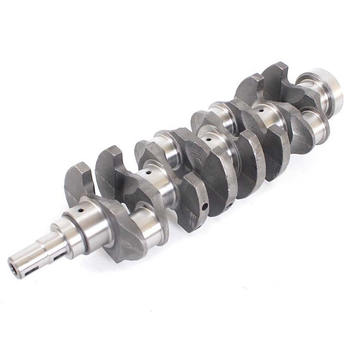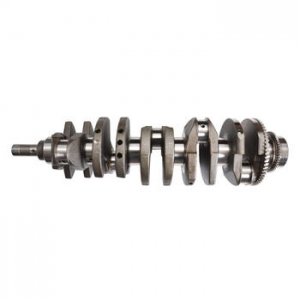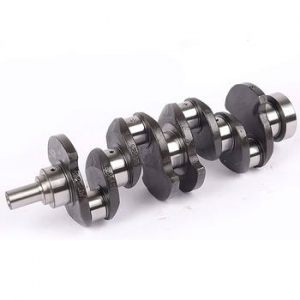Why Engine Vibration is a Problem
If you've ever experienced engine vibration while driving, you know how uncomfortable and distracting it can be. But did you know that it can also cause damage to your engine? Engine vibration is caused by an imbalance in the crankshaft, which can lead to premature wear and tear on engine components. In extreme cases, it can even cause engine failure.
The Importance of High-Quality Crankshafts
To prevent engine vibration, it's important to use high-quality crankshafts. Crankshafts are responsible for converting linear motion into rotational motion, which is necessary to power the engine. A high-quality crankshaft will be precisely balanced, ensuring smooth and consistent engine operation. This will not only reduce engine vibration, but also improve engine performance and fuel efficiency.
Why Choose Toyota Crankshafts?
When it comes to high-quality crankshafts, Toyota is a top choice. Toyota crankshafts are known for their precision engineering and durability. They are made from high-strength materials that can withstand the rigors of heavy use. Plus, Toyota crankshafts are designed to work seamlessly with other Toyota engine components, ensuring optimal performance and longevity.
How to Choose the Right Toyota Crankshaft
When choosing a Toyota crankshaft, it's important to consider factors such as the make and model of your vehicle, the engine size, and the intended use. For example, if you plan to use your vehicle for towing or hauling heavy loads, you may want to choose a crankshaft with a higher weight capacity. Consult with a trusted mechanic or parts supplier to ensure you choose the right crankshaft for your needs.
The Benefits of Reducing Engine Vibration
By reducing engine vibration with high-quality Toyota crankshafts, you can enjoy a number of benefits. These include:
How to Install a Toyota Crankshaft
Installing a Toyota crankshaft is a job best left to a professional mechanic. However, if you're comfortable working on your own vehicle, here are the basic steps:
- Remove the old crankshaft
- Clean the engine block and crankshaft bearings
- Install the new crankshaft
- Install new crankshaft bearings
- Install the crankshaft pulley and timing components
- Refill the engine with oil
- Start the engine and check for proper operation
In Conclusion
If you're experiencing engine vibration, it's time to invest in a high-quality Toyota crankshaft. Not only will this reduce engine noise and improve performance, but it will also help extend the life of your engine. By choosing the right crankshaft and having it installed by a professional mechanic, you can enjoy a smoother, quieter, and more reliable ride.
FAQs
Q: How often should I replace my crankshaft?
A: The lifespan of a crankshaft depends on a number of factors, including the make and model of your vehicle, the engine size, and the intended use. However, as a general rule, it's recommended to replace the crankshaft every 100,000 to 150,000 miles.
Q: Can I install a crankshaft myself?
A: While it's possible to install a crankshaft yourself, it's a job best left to a professional mechanic. Installing a crankshaft requires specialized tools and expertise, and improper installation can cause serious damage to the engine.
Q: How much does a Toyota crankshaft cost?
A: The cost of a Toyota crankshaft depends on a number of factors, including the make and model of your vehicle, the engine size, and the intended use. However, as a general rule, you can expect to pay between $300 and $800 for a high-quality Toyota crankshaft.




